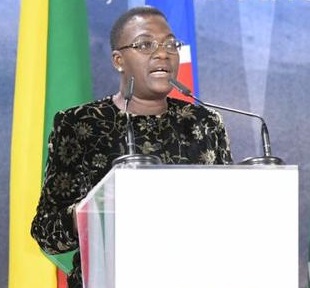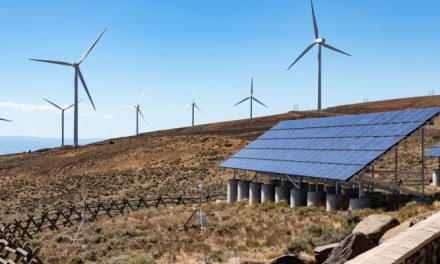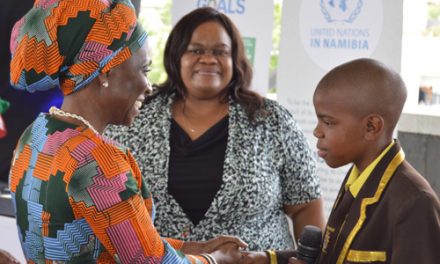
International Energy Conference resolves to ensure Africa defines a just energy transition on its own terms

The second and final day of the Namibia International Energy Conference held on 21 April, cemented agreement on the continent’s need to utilise its energy mix to industrialise as it formulates a just transition to a greener energy mix, on its terms.
Following on the resolute tone set by the Ministerial panel which ran on the first day of the conference on 20 April, where Hon Minister Tom Alweendo – together with Equatorial Guinea and Zambia counterparts, H.E. Gabriel Obiang Lima and Hon. Peter Chibwe Kapala, as well as H.E. Dr Omar Farouk Ebrahim: Secretary-General, African Petroleum Producers Organisation (APPO) – declared that a just energy transition was necessary for Africa’s industrialisation and economic development.
In a panel discussion on how to formulate a just energy transition on 21 April, there was overwhelming agreement that Africa must shape its narrative and define for itself what a just energy transition must look like.
These were sentiments shared by Paulo Gomes, founder and Chairman of Orango Investment Corporation. NJ Ayuk, Chairperson of the Africa Energy Chamber further iterated that a just transition cannot exist without oil and gas. Being in varying states of economic, industrial maturity and carbon footprint emission levels, the developed world “needs to decarbonise, and Africa needs to industrialise,” said Ayuk.
The panel took things further to propose that Africa must take a united message to COP27, which takes place in Egypt later this year to a round of applause in the room.
The calls for Africa to exploit its existing resources to create and leverage an energy mix to transform its industrial and economic development comes at a time when there is a decline in investments in oil and gas in Sub-Saharan Africa. According to global investment trends shared by Osam Iyahem of the Africa Finance Corporation, investment and finance institutions have increasingly reallocated financing previously directed to energy capital towards renewable energy, where investment in fossil fuels reached its lowest levels yet in over 10 years in 2020.
While capital is available, access to investment is also hamstrung by how countries navigate their regulatory environments, and the feasibility and the preparation and bankability of projects. A good regulatory environment, where the needs of both the country and investors are met, where the state facilitates energy to share; prompt exploration; addresses environmental concerns and local content through training and local employment as well as activity controls can make the difference between profit and plunder. They must also create legislative environments that enable investors to monetise and have stability and enforceability. Specifically in the Namibian context of the recent oil discoveries, the panel discussion on regulatory frameworks recommended that an independent regulator of the upstream oil and gas sector should be established in line with the White Paper on Energy Policy of 1998 and the National Energy Act.
In her closing at the conference, Namibia’s Deputy Minister of Mines and Energy, Kornelia Shilunga affirmed that the end of the 4th edition of this conference has helped Namibia to understand the magnitude of the task of migration and fast-tracking transformation to cleaner sources of energy to reach the remotest parts of the country while maintaining its position to use hydrocarbon resources to help solve Namibia’s socio-economic challenges with the oil discoveries.
“We are cognizant of the energy poverty that needs us to act in a quicker fashion as we navigate the rocky path of the geopolitics in an environmentally friendly manner, with the necessary investment, funding and resources. This must happen to the benefit of the Namibian nation,” said Shilunga.
The two-day conference took place in Droombos Estate, Windhoek under the patronage of the Ministry of Mines and Energy, and in partnership with the Africa Energy Chamber.













































